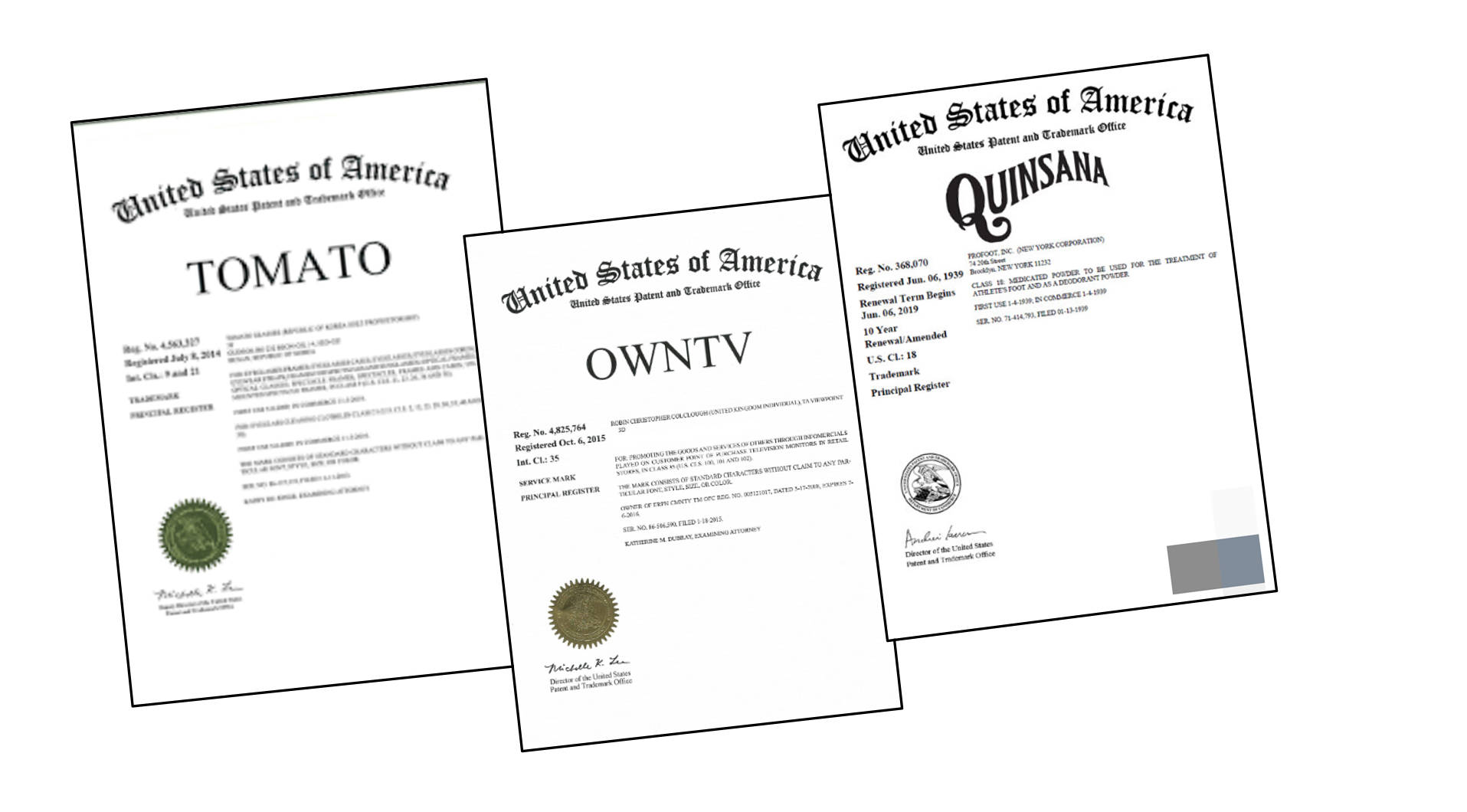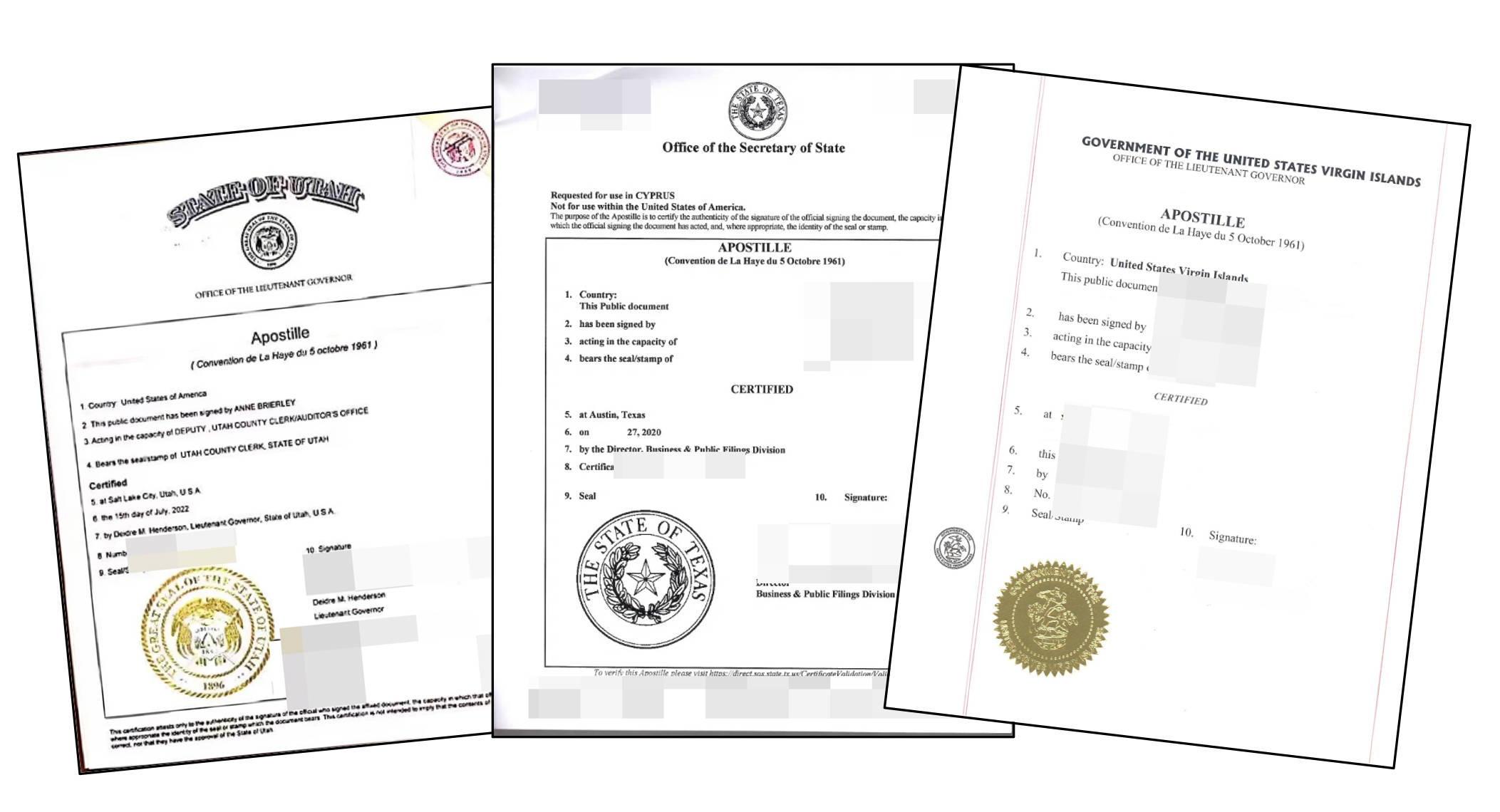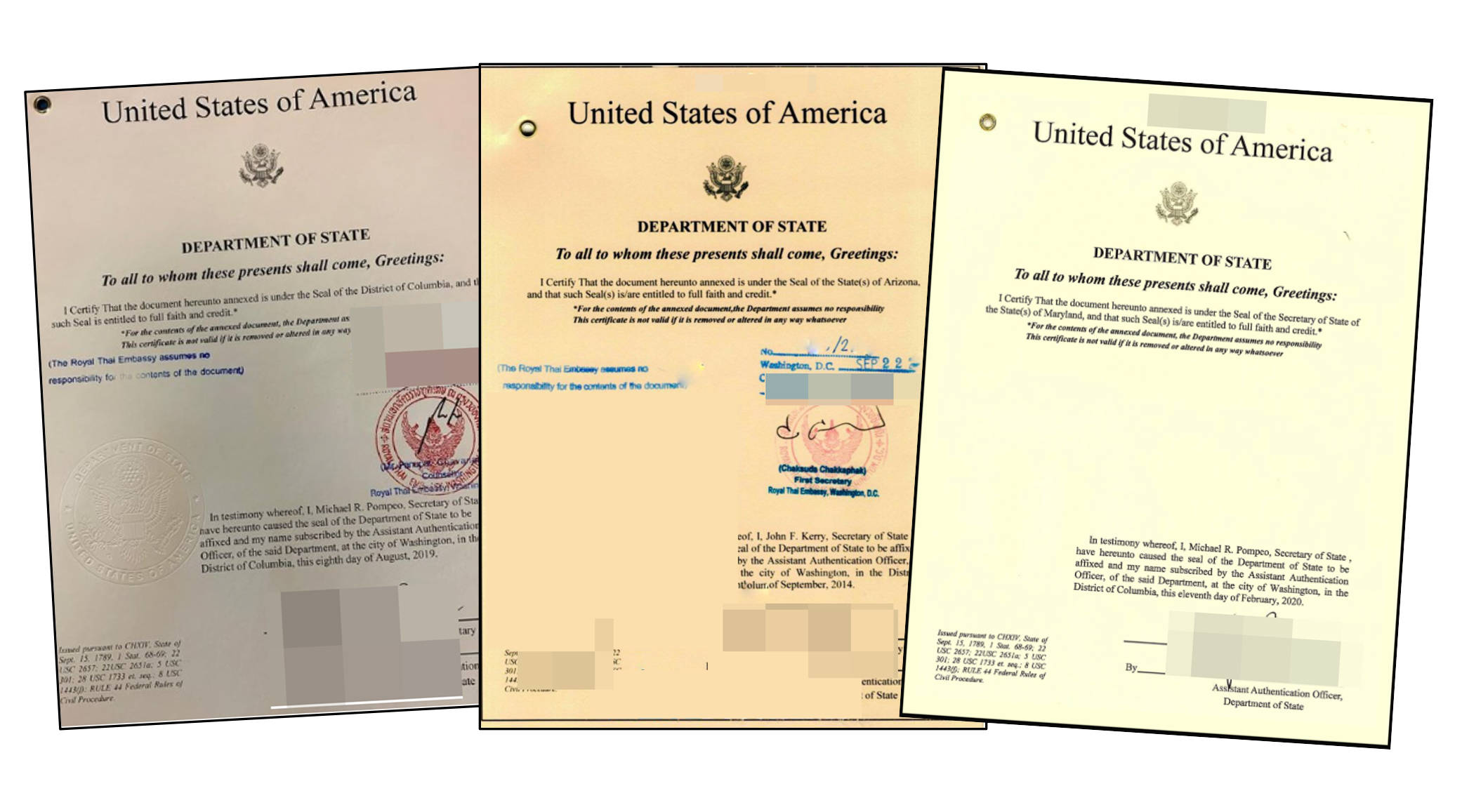Trademarks Certification, Hague certification, consulate certification

The protection of brands and trademarks is crucial. To ensure international recognition and legal protection of trademarks, Hague certification and consular authentication of trademark certificates have become essential in cross-border operations. The following will provide a detailed introduction to U.S. trademark certificates, Hague certification, and consular authentication, as well as explore related agency services offered by the Washington, D.C. notary office.
What is a U.S. Trademark Certificate?
A U.S. Trademark Certificate is an official document issued by the United States Patent and Trademark Office (USPTO), certifying that a specific mark or design has been officially registered as a trademark and is protected under U.S. law. This certificate not only confirms the trademark’s legality but also serves as a legal basis for its use in the U.S. and international markets. It includes key details such as the registration number, registrant information, trademark design, and registration date.
U.S. Trademark Certificate Case
To be honest, many clients who receive a U.S. Trademark Certificate often don’t fully understand which authority issued the document or why they need to go through additional certification processes in China.
In fact, the U.S. Trademark Certificate is issued by the United States Patent and Trademark Office (USPTO), headquartered in Alexandria, Virginia. Imagine you successfully register a brand trademark in the U.S.—the USPTO will grant you an official trademark certificate, which serves as a key document proving your trademark ownership within the country.
However, if you plan to use this U.S. trademark certificate in China—for example, to establish brand presence in Shanghai or Beijing, complete business registration, go public, or engage in joint ventures—you will encounter a challenge: U.S. documents must be legally recognized by Chinese government agencies.
In the past, the process of certifying cross-border documents was quite complicated. It required local authentication in the U.S. first, followed by consular authentication at a Chinese embassy or consulate in the U.S. This process was not only time-consuming but also frustrating, forcing many clients to go back and forth, wasting both time and money.
However, there’s good news! On March 8, 2023, China joined the Convention Abolishing the Requirement of Legalization for Foreign Public Documents (commonly known as The Hague Apostille Convention), and it officially took effect in China on November 7, 2023.
What does this mean? Simply put, if a U.S. document obtains an Apostille from a U.S. authority recognized under the convention, then the U.S. Trademark Certificate can be directly recognized in China—eliminating the need for the previously cumbersome consular authentication process.
In the past, the process of certifying cross-border documents was quite complicated. It required local authentication in the U.S. first, followed by consular authentication at a Chinese embassy or consulate in the U.S. This process was not only time-consuming but also frustrating, forcing many clients to go back and forth, wasting both time and money.
However, there’s good news! On March 8, 2023, China joined the Convention Abolishing the Requirement of Legalization for Foreign Public Documents (commonly known as The Hague Apostille Convention), and it officially took effect in China on November 7, 2023.
What does this mean? Simply put, if a U.S. document obtains an Apostille from a U.S. authority recognized under the convention, then the U.S. Trademark Certificate can be directly recognized in China—eliminating the need for the previously cumbersome consular authentication process.
This change allows clients to save a significant amount of time and effort, avoiding the hassle of running between different embassies and consulates.
More importantly, with China joining the Hague Convention, businesses with international operations now face fewer legal barriers when handling cross-border documents. This makes it much easier and more reassuring for companies to bring their overseas brands into the Chinese market.
In short, by obtaining a Hague Apostille for their U.S. Trademark Certificate through the Washington, D.C. notary office, clients can successfully address cross-border legal recognition issues. This not only streamlines the process but also provides a solid legal foundation and greater convenience for expanding their business in China.
We share case studies to help everyone better understand the relevant processes and practical applications.
Please note: All company names and personal names mentioned in this explanation are purely fictional. Any resemblance to real companies or individuals is purely coincidental.
Our case studies are for reference only, providing a framework for thinking and decision-making. When applying this information, please carefully consider your specific situation and seek professional advice or further verification if necessary.
What is U.S. Hague Certification (Apostille)?
Hague Certification, also known as Apostille, is a form of international notarization established under the 1961 Hague Convention to simplify the legal authentication process for documents between member countries.
For a U.S. Trademark Certificate, if a business needs to use it in another member country, it typically requires an Apostille to ensure the document is legally recognized abroad. Once a document undergoes Hague Certification, an additional authentication certificate is attached, verifying its authenticity and granting it the same legal validity in all Hague Convention member countries.
What is U.S. Consular Authentication (Authentication)?
U.S. Consular Authentication, also known as Authentication, is a legal verification process required when using U.S. documents in countries that are not members of the Hague Convention.
This process typically involves obtaining initial authentication from the U.S. Department of State or other relevant government agencies, followed by final authentication from the embassy or consulate of the destination country. Consular authentication ensures that the document meets the legal requirements of the receiving country, enhancing its validity and authority in international transactions.
Notary Services in Washington, D.C.
The Washington, D.C. notary office provides comprehensive agency services to simplify the complex process of Hague Certification (Apostille) and consular authentication for trademark certificates. Whether for businesses or individuals, the office offers professional consultation and step-by-step guidance, including document preparation, application submission, and tracking the entire authentication process.
Additionally, the notary office provides expedited services to meet urgent authentication needs, ensuring that clients can receive their certified documents as quickly as possible.
Overall, these authentication procedures significantly enhance the international credibility and legal validity of U.S. trademark certificates, helping trademark owners protect their rights and business interests in the global market. The Washington, D.C. notary office’s agency services further add convenience and security, allowing trademark owners to focus on expanding their brands and managing market operations worldwide.
Apostille Sample

Authentication Sample
